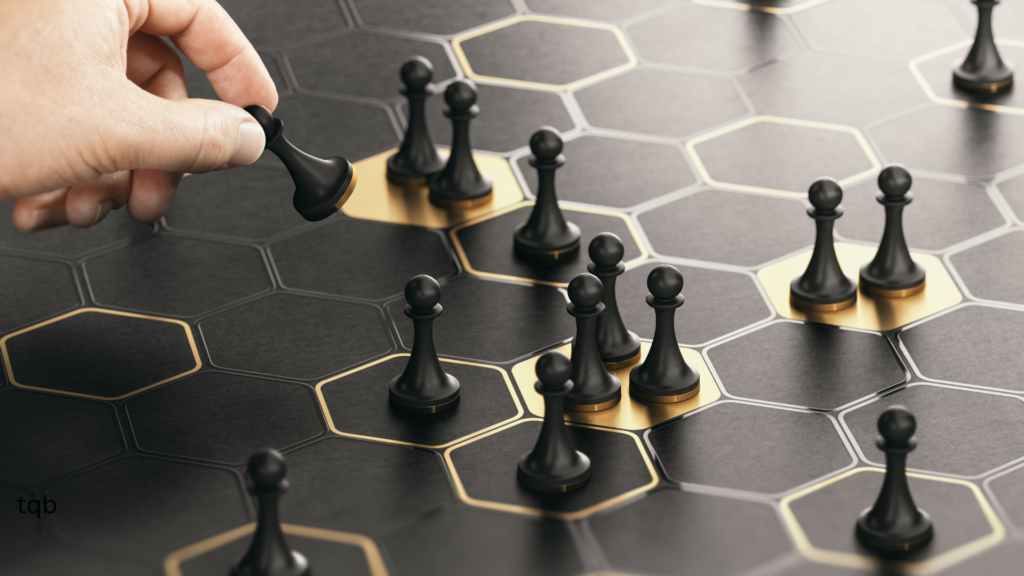Picture this. You’re scrolling through Instagram or Twitter (well, X now), and someone drops a snarky comment about your favorite brand—maybe it’s the phone you swear by, the sneaker label you saved up for, or even that coffee chain you visit religiously. Before you know it, you’re typing away, defending the brand as if someone insulted your best friend. Sounds familiar?

You’re not alone. In today’s digital-first world, people defend their favorite brands with the same loyalty and passion they reserve for family or close friends. But why do we feel so protective? Why does a logo, a product, or even a company ethos strike such a deep emotional chord?
Let’s explore this—through stories, psychology, and the way digital spaces have made brand love a part of who we are.
The Human Side of Brand Loyalty
Brands aren’t just businesses anymore. They’re stories we attach ourselves to.
Think about Apple. For many, it’s not just about the sleek phone or laptop—it’s about being part of a creative tribe that “thinks different.” Or Nike—when you slip into those shoes, you’re not just wearing sports gear, you’re wearing determination, hustle, and “Just Do It” energy.
When we buy into a brand, especially one that has been part of our life for years, we’re not just buying a product. We’re buying meaning. And meaning is deeply human.
That’s why, when someone mocks our favorite brand online, it feels personal. It’s not just the brand they’re criticizing—it’s us.

A Story We All Know
I’ll give you an example from my own circle.
A friend of mine, let’s call him Rohan, is a die-hard OnePlus fan. For him, OnePlus isn’t just about “value for money smartphones.” It’s about being part of an underdog journey—the brand that challenged big giants like Samsung and Apple.
The other day, someone on Reddit dismissed OnePlus as “cheap knock-offs.” Rohan didn’t stay silent. He went on a 500-word rant, passionately explaining the brand’s innovation, community-driven design, and how it disrupted the market.
Later, when I asked him why he cared so much, he simply said: “Because I feel like OnePlus is part of my story. I’ve been with them since their first launch.”
That’s the heart of it. Defending a brand is really about defending the choices, values, and identity we are tied to.
The Digital Amplifier: How Online Spaces Shape Brand Families
Offline, we used to just “like” a brand silently. Maybe we wore the T-shirt, carried the bag, or drove the car. But online? Everything is amplified.
- Social media tribes – Reddit threads, Instagram fan pages, and Facebook groups allow people to bond over their brand love.
- Public debates – Criticism doesn’t happen in private anymore; it plays out on Twitter timelines and TikTok videos. That means defending your brand is not just a reflex—it’s a performance for an audience.
- Community pride – Fans often feel like part of a bigger movement. Tesla owners, for example, don’t just talk about cars; they talk about saving the planet.
In the digital age, brands aren’t just businesses. They’re communities. And communities have rules, values, and pride—just like families.
The Psychology of Brand Defense
At the root of this phenomenon are a few deeply human instincts:
- Identity Protection
When we associate ourselves with a brand, it becomes an extension of who we are. Criticize the brand, and it feels like you’re criticizing me. - Tribalism
Humans have always survived in tribes. Online, brand communities are our new tribes. We defend our “people,” whether it’s fellow iPhone users, gamers with their favorite console, or fans of a clothing brand. - Emotional Investment
We invest not just money but emotion into brands. We share their campaigns, celebrate their milestones, and even anticipate their product launches. That kind of investment demands loyalty. - The Reciprocity Effect
When brands make us feel seen, heard, or understood, we naturally want to return the favor. That’s why we defend them—even against strangers on the internet.
When It Crosses the Line
Some brands are masters at creating this “family bond.” A few examples:
- Starbucks: It’s not just coffee, it’s the “third place” where people feel they belong.
- Harley-Davidson: Owners don’t just buy bikes—they join a brotherhood.
- Patagonia: Customers defend it fiercely because it aligns with their values on sustainability.
- Apple: Arguably the strongest brand tribe in the digital age. The green vs. blue chat bubble war is proof enough.
These brands know that loyalty comes from tapping into deeper human values—identity, belonging, purpose.

What This Means for Companies
If you’re building a brand, here’s the takeaway: people don’t defend products, they defend stories.
Your logo or tagline isn’t enough. To inspire family-like loyalty, you need:
- A story people can see themselves in.
- Values that go beyond selling.
- A community that welcomes and nurtures its members.
- Authenticity in communication—because trust is the backbone of loyalty.
When brands get this right, they stop being companies and start becoming companions.
A Personal Reflection
I remember the first time I bought a pair of Converse shoes as a teenager. They weren’t just shoes; they were rebellion, creativity, and youth rolled into canvas. When someone mocked them as “old-fashioned,” I found myself defending them fiercely. Looking back, I realize it wasn’t about shoes at all—it was about defending my identity.
That’s what brand love really is: not about the product, but about the person we become when we wear it, use it, or believe in it.

Conclusion: Family by Choice
In the online world, brands aren’t just businesses we buy from—they’re families we choose. And just like family, we don’t let anyone bad-mouth them.
When people defend their favorite brands online, they’re really saying: “This is part of me. This is my tribe. This is my story.”
And that, perhaps, is the most powerful thing a brand can ever achieve.
FAQs
Why do people defend brands so passionately online?
Because brands often become tied to personal identity, values, and community. Criticizing a brand can feel like criticizing the person.
Is brand loyalty always positive?
Not always. Healthy loyalty builds trust and belonging, but blind loyalty can prevent people from seeing flaws in a brand.
What brands have the strongest online communities?
Apple, Nike, Tesla, Harley-Davidson, Starbucks, and Patagonia are great examples of brands that inspire family-like defense.
How can a new brand build such loyalty?
By focusing on authentic storytelling, shared values, and building communities where customers feel heard and valued.
Do brands benefit when customers defend them?
Yes—defenders act as unpaid advocates, building trust among new customers and strengthening the brand’s reputation.



